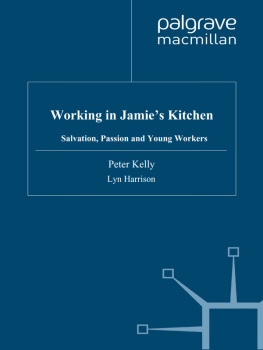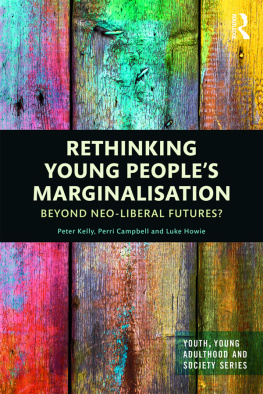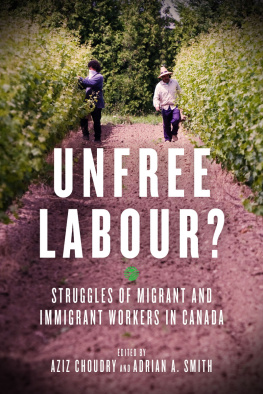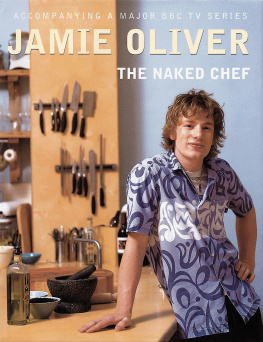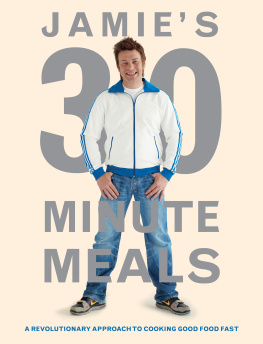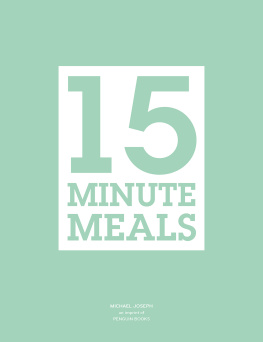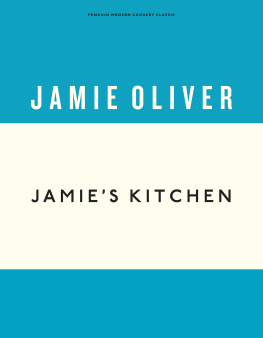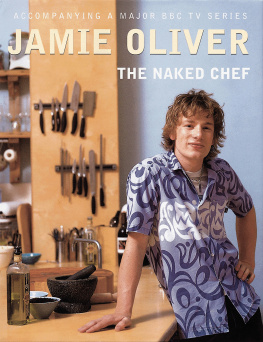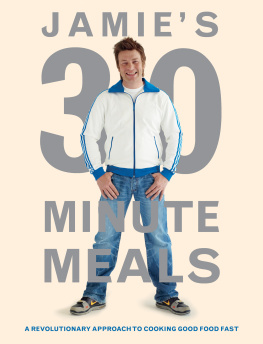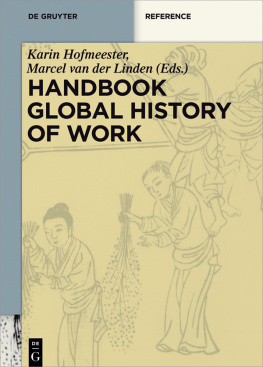Working in Jamies Kitchen
Working in Jamies Kitchen
Salvation, Passion and Young Workers
Peter Kelly
and
Lyn Harrison


Peter Kelly and Lyn Harrison 2009
All rights reserved. No reproduction, copy or transmission of this
publication may be made without written permission.
No portion of this publication may be reproduced, copied or transmitted
save with written permission or in accordance with the provisions of the
Copyright, Designs and Patents Act 1988, or under the terms of any licence
permitting limited copying issued by the Copyright Licensing Agency,
Saffron House, 610 Kirby Street, London EC1N 8TS.
Any person who does any unauthorized act in relation to this publication
may be liable to criminal prosecution and civil claims for damages.
The authors have asserted their rights to be identified as the authors of
this work in accordance with the Copyright, Designs and Patents Act 1988.
First published 2009 by
PALGRAVE MACMILLAN
Palgrave Macmillan in the UK is an imprint of Macmillan Publishers Limited,
registered in England, company number 785998, of Houndmills, Basingstoke,
Hampshire RG21 6XS.
Palgrave Macmillan in the US is a division of St Martins Press LLC,
175 Fifth Avenue, New York, NY 10010.
Palgrave Macmillan is the global academic imprint of the above companies
and has companies and representatives throughout the world.
Palgrave and Macmillan are registered trademarks in the United States,
the United Kingdom, Europe and other countries.
ISBN 9780230515543
This book is printed on paper suitable for recycling and made from fully
managed and sustained forest sources. Logging, pulping and manufacturing
processes are expected to conform to the environmental regulations of the
country of origin.
A catalogue record for this book is available from the British Library.
A catalog record for this book is available from the Library of Congress.
10 9 8 7 6 5 4 3 2 1
18 17 16 15 14 13 12 11 10 09
Printed and bound in Great Britain by
CPI Antony Rowe, Chippenham and Eastbourne
For Noreen and Georgia, Mum and Dad Peter
For Kate Lyn
Acknowledgements
Extracts from Jamies Kitchen courtesy of Jamie Oliver and Fresh One Productions.
Extracts from Jamies Kitchen Australia courtesy of FremantleMedia Australia.
In parts of the section The problem of youth first appeared, in a different form, in P. Kelly, Youth as an artefact of expertise: problematising the practise of youth studies, Journal of Youth Studies 3, 3 (2000), pp. 30115.
In parts of the section The problem of the youth labour market first appeared, in a different form, in A. Furlong and P. Kelly, The Brazilianisation of youth transitions in Australia and the UK?, Australian Journal of Social Issues, 40, 2 (2005), pp. 20725.
In parts of the section The DIY self: risk, reflexivity and individualization, first appeared, in a different form, in P. Kelly, Youth at Risk: Processes of Responsibilization and Individualization in the Risk Society, Discourse, 22, 1 (2001), pp. 2334.
In parts of the section The care of the self: power and the subject, first appeared, in a different form, in P. Kelly, Youth as an artefact of expertise: problematising the practise of youth studies, Journal of Youth Studies, 3, 3 (2000), pp.30115.
In parts of the section (Neo)liberal governmentalities: the emergence of the entrepreneurial self, first appeared, in a different form, in P. Kelly, The entrepreneurial self and youth at-risk: exploring the horizons of identity in the 21st century, Journal of Youth Studies, 9, 1 (2006), pp. 1732.
Introduction: Wasted Lives
Keep ancient lands, your storied pomp! cries she
With silent lips. Give me your tired, your poor,
Your huddled masses yearning to breathe free,
The wretched refuse of your teeming shore.
Send these, the homeless, tempest-tost to me,
I lift my lamp beside the golden door!
(Emma Lazarus, The New Colossus,
Statue of Liberty, New York, NY)
Jamie Oliver will open a branch of his successful Fifteen restaurant in Cornwall next week, in the full glare of the worlds media. Out of the spotlight will be Liam Black, the quietly charismatic social entrepreneur who runs the Fifteen Foundation a registered charity that receives all profits from the eponymous restaurant in east London and whose job it is to turn Olivers social enterprise into a global brand.
This means establishing a string of franchise restaurants that combine Olivers trademark cooking with stylish locations, and that guarantee to train and support 20 disadvantaged young people each year to become professional chefs.
The foundations mission is to inspire unemployed, undereducated and low-skilled young people and to provide them with the know-how necessary to forge a career in the restaurant and hospitality industry. It pays trainees 50 a week to attend college full time, rising to 100 as a Fifteen apprentice, plus travel costs
Yet its initial failure to offer the aspiring chefs help with issues such as drug taking, or finding accommodation, drew criticism. One of Blacks first moves was to employ youth support worker Claire ONeill. She identified cannabis use, housing difficulties and an inability to change their often chaotic lifestyles as major obstacles preventing some of the young people from graduating. She hopes that drugs counselling and life skills coaching, together with extra educational help for those who need it, will improve Fifteens 73% success rate.
(Alison Benjamin, 2006, Recipe for Success, Guardian)
Zygmunt Bauman, the influential sociologist of liquid modernity, argues that at the start of the twenty-first century large numbers of people around the globe hundreds of millions, in fact are surplus to requirements, are, indeed, redundant. In Wasted Lives: Modernity and its Outcasts, Bauman (2004, pp. 56) argues that this redundancy is a consequence of the global spread and triumph of modernisation processes: The production of human waste (the excessive and redundant, that is the population of those who either could not or were not wished to be recognized or allowed to stay), is an inevitable outcome of modernization. These modernization processes can, largely, be understood in terms of the colonization of all aspects of life, of all spaces and places by market forces, practices and processes under regimes of capital accumulation. As processes of modernization have become truly globalized, as the totality of human production and consumption has become money and market mediated, and the processes of the commodification, commercialization and monetarization of human livelihoods have penetrated every nook and cranny of the globe, then the crisis of the human waste disposal industry (emphasis in original) has become more acute.
A key element to Baumans (2004, pp. 57) argument is that the history of European colonization is a history characterized by exporting redundant humans to the pre-modern, under-developed spaces of the New World, Africa, Asia and the Pacific. The triumphant globalization of modernization has resulted not only in the continued (over)production of wasted lives in the overdeveloped West, but also the disappearance of a colonial solution to waste disposal. Moreover, the figures of the immigrant, the asylum seeker and the refugee
Next page
